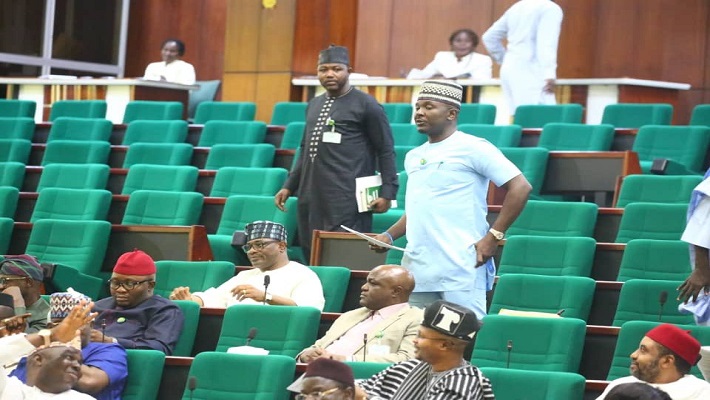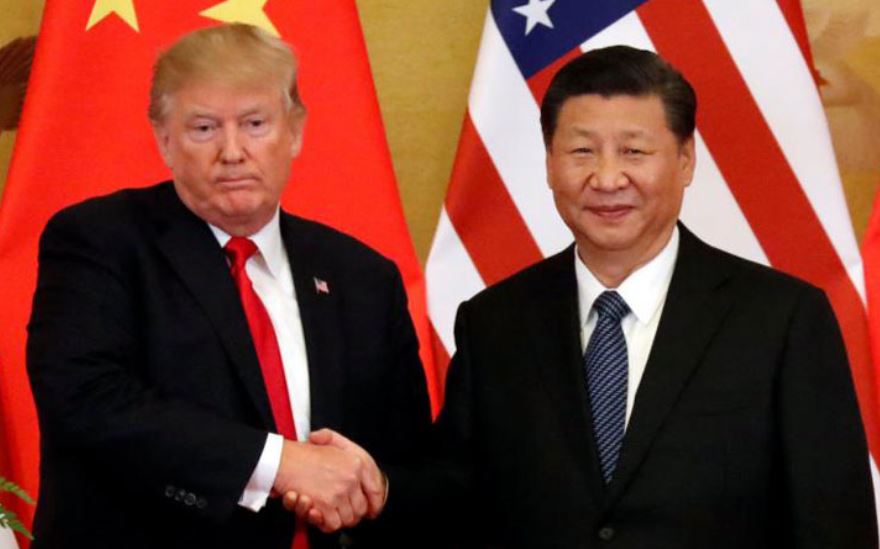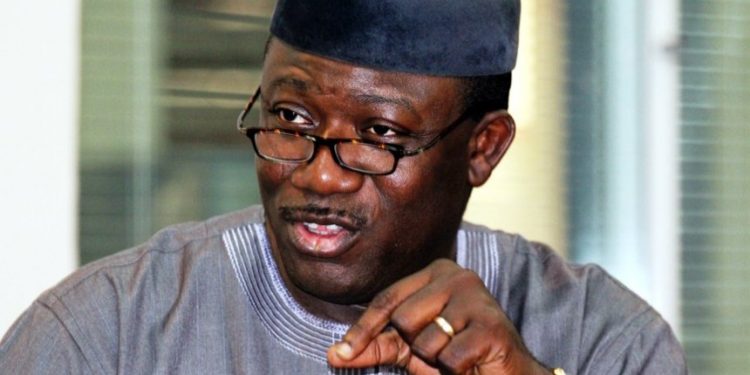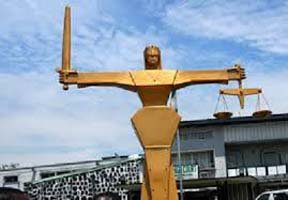The controversial Vaccine Bill, also known as the Nigerian Emergency Health Bill,2020 was sponsored by 104 out of 109 senators, clearly indicating that the Bill will scale through without much hurdles in the Red Chamber.
Same Bill also entitled Control of Infectious Diseases Bill,2020 was promoted by the Speaker of the House of Representatives, Femi Gbajabiamila and two others.
Recall that when it was introduced barely three weeks ago, the speaker had wanted it to be given speedy and accelerated hearing without a public hearing.
The following week Tuesday he made a u-turn that the Bill can now undergo a public hearing after public outcry condeminig the imported bill.
In the Senate the message was loud and clear that it’s basically a Bill for the entire chamber.
This development has further fuelled speculations in so many quarters in Nigeria giving credence to the fact that there’s a conspiracy theory somewhere along the line.
In a recent Analysis by Rep Kingsley Chinda, a member of the House of Representatives, representing Obio/Akpor Federal Constituency of Rivers State, the underbelly of both legislative chambers was well exposed.
In the Analysis, Chinda made a vivid comparison of both bills exposing all the similarities and verbatim sections.
All the inherent dangers of the bill that was imported from Singapore we’re properly x-rayed.
Read part of the Analysis entitled: AN X-RAY OF THE HOUSE OF REPS “CONTROL OF INFECTIOUS DISEASES BILL, 2020” AND THE SENATE “NIGERIAN HEALTH EMERGENCY BILL, 2020”.
The Bills, distinction without a difference.
Reading through both Bills: Control of Infectious Diseases Bill, 2020 and the Nigerian Health Emergency Bill, 2020, one wonders if the drafters (Sponsors) in the House of Representatives and the Senate were under Pentecostal anointing and inspiration that both Bills are drafted separately but with 95% of the Sections being verbatim. In fact, in some clauses they suffered common errors of wrong referencing and common mistakes. A few examples will suffice:
– Section 16 (5) “Direction” used for directive in both Bills.
– Section 64 (House) and 54 (Senate) both are verbatim and have wrong referencing of section.
This striking similarity leaves one with no option than to conclude that both Bills are from same source, the difference in nomenclature not withstanding, This can only lend credence to the “conspiracy theory” that is already making the rounds.
The House version has 81 Sections, while Senate version has 71 Sections.
A). Sections 1 to 21 are verbatim both in numbering of the sections and the word contents therein.
B). Sections 22 and 23 are same save that in the Senate version, “An Enforcement Officer” was changed to “A designated Health Officer” and community service was added to the punishment. All other words are same.
C). In the Senate version, Section 24, 46 to 53 in the House version were omitted
Section 24 – “Power of enforcement officer to order destruction of house, building or anything”.
Part IV: Sections 46 to 53- “Vaccination and other Prophylaxis.”
The omission of the Sections (24 and 46-53) in the Senate version altered the numbering of the Sections from Section 24, from being same with House version. Aside the change in numbering of sections, the contents of both Bills remain the same, saved a few monetary penalties where the House version has Five Million Naira and the Senate’s has Two Million Naira.
Of the 71 Sections in the Senate version, 69 are verbatim reproduction of the House version with only 2 sections making slight changes, like the Short Title in section 71.
The Bills’ connection to a dubious history
The Bills are both ninety-seven percent copied from the Singapore Infectious Disease Act, ( Chapter 137 of the 2018 Revised Edition), which incidentally has been amended. While we concede that statutes and legislations generally are exempted from the legal burden of plagiarism, they are, however, not exempted from the moral burden of copious reproduction of a work. The copious reproduction of the Singaporean law leaves the impression of Parliamentary laziness and clearly, the 9th National Assembly is not that lazy. A lot of industry abound within and this has been demonstrated several times.
Again, where Bills are imported, they are adapted to the local circumstances. It is interesting to note that Singapore was under the reign of a maximum ruler, Lee Kuan Yew, who operated a one-party socialist State. Some of Lee’s famous quotes amongst others are “Between being loved and being feared, I have always believed Machiavelli was right. If nobody is afraid of me, I’m meaningless. If you can’t force or are unwilling to force your people to follow you, with or without threats, you are not a leader.” This theory of leadership, though helped to move Singapore forward, would be out of place in our Nigerian setting today. Thus the Bill is draconian in a multi-party federal system democracy as practiced in Nigeria. We cannot domesticate the law of another nation. The Singapore Infectious Disease Act 1977 is not an International protocol that we should adopt wholesomely without any changes. While we can borrow the idea of the law from Singapore, we must adapt it to our local circumstances and bring it in line with existing local Statutes. This worrisome method of blindly copying legislations from other climes can only do more harm than good to our jurisprudence.
WHAT NIGERIANS SHOULD KNOW ABOUT THE BILLS
1. The long Title of the Bills are:
For Reps “A BILL FOR AN ACT TO REPEAL THE QUARANTINE ACT, CAP. Q2, LAWS OF THE FEDERATION OF NIGERIA, 2004 AND ENACT THE CONTROL OF INFECTIOUS DISEASES BILL, MAKE PROVISIONS RELATING TO QUARANTINE AND MAKE REGULATIONS FOR PREVENTING THE INTRODUCTION INTO AND SPREAD IN NIGERIA OF DANGEROUS INFECTIOUS DISEASES, AND FOR RELATED MATTERS (HB.836)”.
For Senate “A BILL FOR AN ACT TO REPEAL THE QUARANTINE ACT, CAP.Q2, LFN, 2004 AND ENACT THE NATIONAL HEALTH EMERGENCY 2020, (sic) TO MAKE PROVISION FOR REGULATING AND PREVENTING THE INTRODUCTION INTO AND SPREAD IN NIGERIA OF DANGEROUS INFECTIOUS DISEASES, AND FOR OTHER RELATED MATTERS (SB.413).
While the short titles are “Infectious Diseases Bill 2020” and “National Health Emergency Bill, 2020”. A closer look at the content of the Bills reveal that the title of the House Bill is deceptive. Whereas it purports to regulate “infectious diseases’, it actually goes beyond infectious diseases and regulates diseases of any nature, depending on the discretion of the Minister – Section 5(1)(b) of the Bill. Senate dropped Section 5(1)(b) and terminates at Section 5(1). The short title of the House Bill should actually be Control of Diseases Bill ,2020 rather than “Control of Infectious Diseases Bill, 2020” as contained in Section 81 of the Bill.
2. The power to administer the Bill is vested in the Director General (DG) of Nigeria Centre for Disease Control (NCDC) under the directive of the Minister. Please note that the office of the DG was created by another Act, the Nigeria Centre for Diseases Control Act, 2018 with powers and functions bestowed on the DG under that law. Section 1 in both Bills.
– The powers vested in these political appointees are humongous and bound to be abused. More so, they are accountable to their appointor and take instructions from him and not from the Nigerian people.
– The NCDC Act that created the office of the DG gave him powers and also gave some powers to the Board of NCDC. Some of the functions of the Board under the NCDC Act are given to the DG under this current Bill.
More curious is the fact that the NCDC Act was passed only two (2) years ago and has not been fully practiced as to observe its shortcomings. The Board of the Center has not been inaugurated. It is therefore too hasty to assess its performance.
3. The Bills as stated in the introductory paragraphs above, failed to take cognizance of our local circumstances. Consequently, the Bills have some serious Constitutional and statutory contradictions. Several sections that are the life wire of the Bills conflict with existing laws and the 1999 Constitution.
– The Federal System of Government in Nigeria was not considered in the Bill, thus there are no role(s) for other tiers of government- (States and Local Governments), particularly the States as a federating units. This is more serious, recognizing the fact that Health is an item in the concurrent legislative list under the 1999 Constitution. The implication is that State Assemblies can also legislate on same matter.
– The Powers of Governors to take steps and come up with Executive Orders in times of public heath emergencies contained in the Quarantine Act sought to be repealed were jettisoned. Thus, State Governors have no role and are merely at the mercy of the DG, NCDC and the Minister for Health. This is abnormal and would be counter productive.
– All State Governors are today relying on the Quarantine Act to come up with Executive Orders to manage the COVID-19 peculiar situations in their respective States. If this power is removed, it means that the DG, NCDC has to micro- manage all the States and Local government areas in the country in times of health crises (as we have now). This will be most inefficient.
– The Bills severally and frontally attack the rights of citizens under Chapter 4 of the Constitution dealing with Fundamental Human Rights, and also the African Charter on Human and Peoples’ Right (Ratification and Enforcement) Act, Cap. A9 Laws of the Federation of Nigeria, 2004: The United Nations Declaration on Human Rights, 1948 and International Convention on Civil and Political Rights, 1976 which have been ratified by Nigeria and are therefore local legislations.
– The Bill, also conflict with the Environmental Health Officers (Registration ETC) Act 2002. The DG is empowered in S.2 of both Bills to appoint ANY public Officer, officer of ANY Statutory body or employee of a prescribed institution as a Health Officer to execute the Bill. This is against the clear Provision of sections 13(1) and 14 of the Environmental Health Officers Act which outlaws any practice or provision of Health services in Nigeria without certification by the Council – Health Officers are professionals and cannot be picked discretionally by any individual as provided for in the Bills.
– The National Programme on immunization Act, Cap. N.71, LFN 2004, Vol.9. Section 6 of the Act covers some contagious diseases like Tuberculosis (TB), Whooping Cough etc., with an omnibus clause in Section 6(f) which empowers the Minister to cover any other disease he deems fit. These are the same diseases the present Bills seeks to take care of. The Immunization Act is a specific law on immunization, whilst the present Bills, particularly the House version Section IV has vaccination and prophylaxis as one of the items covered in the Bill. The Senate version was silent on vaccination.
– Nigerian National Health Act 2014 regulates health practice and practitioners in Nigeria, including the protection of the fiduciary relationship of Medical Practitioners and their patients.
4. Section 3 of both Bills which empowers the President to declare a public emergency and public health emergency zones in the country or any part thereof did not state the method of publishing the declaration. Under S.3(5) of the Bills, the method of publication is left at the discretion of the President. The Bills provide that “it shall be published in such a manner as the President thinks necessary for bringing it to the notice of all persons who in his opinion ought to have notice thereof…” Also, there is no time frame within which same should be sent to the National Assembly (NASS) for ratification. It only says “as soon as possible”, which is subject to interpretation of the operators.
5. Section 6 of the Bills provides for compulsory testing based on mere suspicion by the DG, NCDC. Failure to test at one’s own cost, attracts legal sanctions, including a conviction. This provision can and would be abused by power drunk officers without an option of legal challenge to such abuses. There are people whose religion does not permit injections or blood test or transfusion. This could well be a breach of their right to freedom of thought, conscience and religion enshrined in Section 38 of the 1999 Constitution.
6. Section 7 of the Bills empowers the DG, NCDC to order a post-mortem test, based on suspicion. No exception was considered and it is entirely at the discretion of the DG. This could breach the right to freedom of thought, conscience and religion in Section 38, of the 1999 Constitution.
7. Section 8 of the Bills removes the fiduciary relationship (the duty of confidentiality) between patients and their personal Physicians on mere suspicion. The Nigerian Health Act still protects this relationship and is therefore in conflict with the Bills. This can only be reasonable after a test is carried out and the person is confirmed to be infected. A citizen can be subjected to inhumane treatment and denied his right to privacy by publishing his/her medical history without his/her consent and refusal to disclose such is made a crime. This is absurd.
8. Section12 of the Bills empower the DG on mere suspicion to stop a wake-keep and prohibit the burial of a deceased by his/her family. This again violates Sections 34 and 38 of the Constitution on the Citizens’ Right to Human Dignity and Right to Thought, Conscience and Religion. Burial rites are mostly cultural or religious-based. This would be reasonable if it is confirmed that the corpse is infected. Even at that, the infected corpse does not need to be present at the wake-keep.
9. Section13 empowers the DG on mere suspicion to detain a citizen as long as he wishes without an order of a competent Court of law and he of course cannot be sued even where his suspicion turns out afterwards to be false or wrong, as Section 70 protects the DG and his agents from personal liability. This runs foul of the victim’s fundamental Right to Liberty (S.35) and movement (S.41) of the Constitution. Also, note that S.35 (e) which provides an exception only contemplates those suffering from a disease not “suspected” as provided in the Bill. Thus, the Bill tends to surreptitiously amend Section 35(e) of the Constitution through the back door.
10. Section 14 again gives the DG power to place a citizen under surveillance on mere suspicion. The worry is that these encroachments on rights of citizens are done on mere suspicion and since no personal liability is incurred for any default, the DG or his representative could be careless. This contravenes S.37 of the Constitution (Right to private and family life).
11. Section 15 of the Bills empowers the DG to issue a notice to take over a citizen’s property and declare it an isolation center without the consent and permission of the owner. This provision is subject to serious abuses as perceived political enemies and or opposition party members could be easily targeted and/or abused under the guise that their property is declared an isolation Center without recourse to a Court of law. It runs foul of Section 44 of the Constitution (Right against compulsory acquisition of property). Again, the section conflicts with the right of Governors over lands in their States under the Land Use Act, as property can now be acquired in a state without the Governor’s consent.
12. Section16 of the Bills is a very potent instrument against religious and social organizations. Thus, if in the opinion of the DG any building is deemed overcrowded, the DG can make an order dispersing the crowd and anybody who goes in commits an offence. How do you opine or conclude that the gathering is likely to expose occupants to infectious diseases?
Once a decision is taken, it becomes effective regardless of any protest or appeal. The appeal is to the Minister whose decision is final and he is an interested party. Thus he is a final arbiter in his own matter. This, again violates the Citizens’ right to fair hearing in Section 36(2)(a) and (b) of the Constitution.
13. Section 19 of the Bills gives the DG power to prohibit or restrict for not more than14 days any meeting or gathering as he deems fit on the ground that such activity is likely to increase the spread of infectious diseases. The 14 days’ restriction is renewable. The Senate version deleted the word “Prohibition” in the heading of the Section thus leaving only restriction of meeting but unfortunately, in he body like in the House version, prohibition and restriction were used.
Also Senate version omitted sub section 4 which empowers a Health Officer or a Police Officer to take any necessary action to give effect to an order under the section.
The concern is the exercise of excessive discretion which leads to abuse. Sections 35 and 40 of the Constitution which deal with Personal Liberty and Right to peaceful assembly and association are breached by this provision.
14. Section 20 of the Bills talks about a carrier unlike other sections where a suspect is made to suffer
15. Section 24 of the House version empowers an Enforcement Officer to obtain an order from a Court (Magistrate) to destroy a building where infectious disease occurred. This is too draconian as fumigation or disinfection of such building will sanitize it rather than outright destruction. Also, note that the owner has no claim against the Officer under S.70 of the Bill. This section is omitted in the Senate version.
16. Section 27 of House Version (H) and Section 26 of Senate version (S) also allow the DG to exempt a vessel coming from an infected area from being deemed to be infected. There are no grounds for the DG to arrive at that conclusion, it is left to his discretion and likely to be dangerously abused.
17. Section 30 also gives the DG the discretion to determine any vaccine that will be compulsory for citizens to take before they can travel out of Nigeria. Note that vaccines are made from animal genes and it could be one made from a prohibited animal such as swine that are forbidden by Moslem and some Christian sects and citizens will be compelled to take it. This is most unconventional. What obtains is that countries, depending on their peculiarities request that visitors must be vaccinated against certain diseases. Consequently, if you are travelling to such countries, such vaccination form part of the entry requirements, but not to impose it on our citizens as a mandatory condition before travelling out of the country especially where the country they are travelling to does not require them to take such vaccine(s). This section was omitted in the senate version.
18. Section 33 (H) and Section 31 (S) in sub-section 3 of the House version referred to Section 33 instead of Section 32. The Senate version is correct.
19. Section 38(1) (H) should be sub-section 2. The Senate version is Section 36 and is correct.
20. Section 45 (H) and 43(S) empowers the DG to order for medical examination of persons leaving Nigeria and it is an offence not to under go such medical examination before travelling out of the country. This may affect foreign Nationals on visit to Nigeria. It is a serious disincentive to DFI inflows and tourism.
21. Sections 46 and 47 of the House version provide for compulsory vaccination of children and adults with some specified vaccines. This should not be compulsory as in some climes, there are incentives given to encourage vaccination. There must also be an exception on health or religious grounds. Recall the Pfizer experience in Kano where vaccines turned a killer injection and in South Africa where HIV vaccines were deliberately administered on blacks. Vaccines sometimes have turned out to be dangerous. To compel one to take a vaccine made of stuff that is against his belief is a breach of Section 38 of the Constitution (Freedom of thought, conscience and religion). More so, under Section 47(4) of the Bill, the DG is required to give notice of the order for vaccination as non-compliance is a crime under section 51, yet he still has discretion on the method of notice. Thus, the DG could simply paste the order for vaccination on his office notice board and if you fail to vaccinate within the prescribed time, you commit and offence. Entire Part IV of the House version, (Sections 46 to 53) are omitted in the Senate version.
22. Section 49 which provides exception to the vaccination only allows medical grounds without the very important religious ground and the exemption is also at the discretion of the DG. The DG determines who will be exempted or not and issues exemption certificate. This is Omitted in the Senate version.
23. Section 53 provides for fees for vaccination which the Bill makes compulsory. If compulsory vaccination is not free to all, it should at least be free to the vulnerable class as poverty is not a defense under 51. Someone who cannot afford the vaccination commits an offence as poverty will not be an excuse. This is one instance where Nigeria which is the poverty capital of the World, seeks to punish its citizens for being poor. This is Omitted in Senate version.
24. Section 54 (H) and Section 44 (S) empower the DG to enter any premises at anytime and without warrant and with such force as may be necessary. Note that the Bills did not even provide for use of “reasonable force” to enter, search or cease any book or material suspected to be connected to disease out-break. The force that is necessary is determined by the Enforcement Officers. This is akin to asking the Prosecutor to sentence an Accused.
25. Sections 55, 56 and 57 (H) and 45, 46 and 47 (S) of the Bills authorize the entry, search, arrest, seizure and disposal of any premises, thing, vehicle, document or person as the case may be without warrant based on mere suspicion and the private opinion of the DG of NCDC, Health Officers and Police Officers. These Sections are wrong on every level, because they give the Police Officers unfettered powers to seize, arrest and detain based on mere suspicion and without proof of guilt, thereby taking away the all important legal rule that an accused is deemed innocent until proved guilty. Under the Bill, the reverse is the case as a suspect is deemed guilty until he proves otherwise. The DG’s power under Section 56(1) (H) and 46(1) (S) to seize information considered relevant to public health, in his opinion, may be abused to interfere with the all important Constitutional right to freedom of speech and press in Nigeria.
26. The Bills also allow the Executive officers to take extra-judicial decisions to the detriment of citizens’ Constitutional rights to freedom of movement and dignity of human person. This can be seen in Section 57, (7-8) (H) and 47 (7-8) (S) of the Bills. Clearly, Subsection 8 of the Bills give meaning to the measures referred to in Subsection 7 which include the entry into a place without warrant and the use of such force as maybe necessary. The question now is what force can be used by the police officers that will be deemed necessary? This is unconstitutional as Section 34 of the 1999 Constitution clearly stipulates that no person shall be subjected to torture, inhuman and degrading treatment.
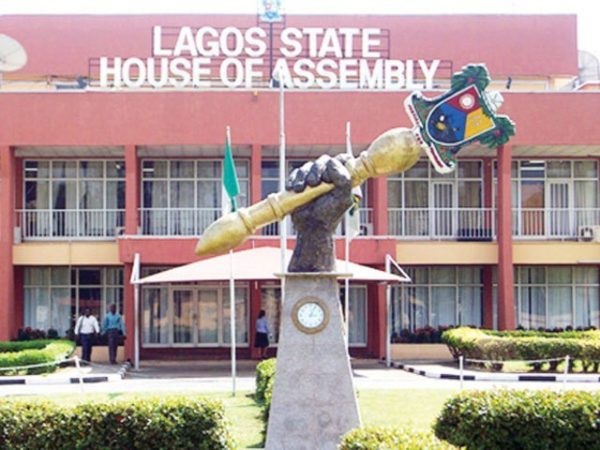
![[TNG Analysis] PIB: The Bill that saw four Nigerian Presidents, yet remains in abeyance](https://thenewsguru.ng/wp-content/uploads/2017/04/Obasanjo-Buhari-Jonathan.jpg)
